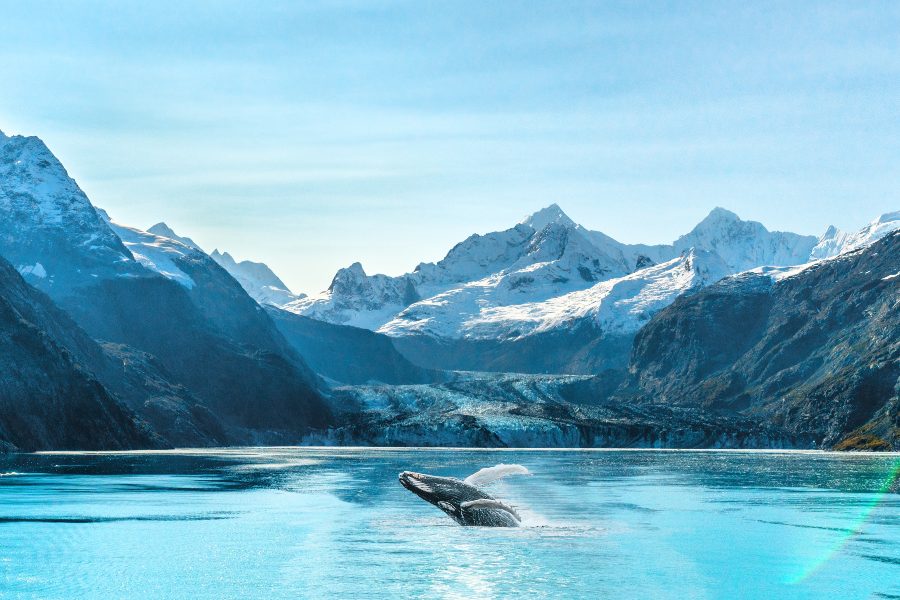Sustainability can easily be classified as the latest trend in the tourism industry, but ecotourism stands for so much more. As a tour operator, you might wonder what ecotourism is and why it is important?
Before the pandemic, over-tourism was a big problem — negatively impacting travel destinations through increased water consumption, air pollution, litter, and waste.
Fortunately, the rise of ecotourism presents itself as an antidote. With more travelers looking for and being willing to invest in responsible travel options, it’s the direction tourism is heading in.
So, as a tour operator, it can be helpful to understand how ecotourism stands apart and how to factor it into your tour business.
We’ll highlight the basics of ecotourism and explore options for developing sustainable practices in your tour business.
What is ecotourism
Ecotourism is nature-based tourism that increases awareness, encourages conservation and minimizes visitor impact through sustainable methods that benefit local economies.
As a result of the pandemic, destination locations were able to reflect on the impact of travel on their smaller communities. And many places relished the break from mass tourism.
While ecotourism isn’t exactly new — stemming in the 1970s and growing in popularity through the 1980s, thanks to conservationists — more travelers are looking for greener options.
So what makes ecotourism different from traditional tourism?
First, responsible tourism encourages visitors to observe and minimize disturbance when travelling. Thoughtful decisions like staying on the trail, opting to bike or walk instead of drive or ferry and choosing providers who actively invest in the surrounding environment.
And second, ecotourism is a more thoughtful approach to travel — aiming to protect biodiversity and preserve natural environments through low-impact experiences.
Ecotourism focuses on cultivating:
- Cultural awareness and respect
- Conservation strategies that include visitors
- Community buy-in and guest support
- Creating opportunities to share local knowledge and traditions
- Hyper-local, personalized experiences
- Increased employment opportunities for residents
- Sustainable revenue generation for local communities
Interestingly, travelers are willing to pay more — but not significantly more — for eco-friendly options. But still, the responsibility remains with the experience provider to offer attractive, sustainable packages.
In pursuit of eco-conscious exploration, travelers will start seeking small-scale, hyper-local and personalized options. Whether you’re starting your own tour operator business or a veteran in the travel industry, it’s wise to stay on top of the latest trends.
How tour operators can look at sustainable opportunities
Revenue aside, one perk of ecotourism for tour and activity providers is choosing to become more ethical and socially responsible.
So, how can tour operators get started with ecotourism options?
- Start inviting guests to be a part of the solution
- Begin offering experiences centred on awareness and education
- Hire skilled guides willing to share stories highlighting unique attributes of the area
- Look into existing conservation efforts and environmental preservation in your location
For instance, if you’ve developed a tactic that reduces water consumption or waste in your tour business, highlight the impact of this decision in a monthly newsletter or social media post.
Sharing how you’re becoming an eco-conscious tour operator matters because, before visitors opt for high-priced ecotourism experiences, they need to be aware of the impact of their decisions.
Visitors will share memorable moments online and with friends and family, promoting their responsible travel experiences.
And increased awareness generates additional demand, drawing more guests towards sustainable choices.

What are the principles of ecotourism
As someone looking to develop sustainable travel options, the pillars of ecotourism can be split into three parts, accounting for people, planet and profits — equally.
Education
Awareness is one of the key elements of ecotourism. In part, travelers need access to information to make better decisions. Underlying social responsibility is the core of ecotourism, where visitors feel compelled to leave places better than they found them.
Ideally, travelers will learn more about the areas they visit and develop a better sense of how to protect them. And experience providers will encourage guests to participate in more meaningful interactions with local community members.
Ultimately, the world doesn’t need every tour operator to be perfect in pursuing sustainability. Instead, the world needs more travelers choosing sustainable options wherever they can.
Exposure
Ease of access to unique destinations is a big factor in ecotourism. With many majestic places accessible only by boat or plane, mass tourism outweighs the benefits of the economic benefits.
Experience providers can create boutique offerings that appeal to visitors, making ecotourism options part of a long-term strategy.
Supporting the local economy and giving guests memorable experiences without compromising the environment will build momentum for more sustainable choices for guests.
For example, travelers can opt to view wildlife at a distance in their natural habitat instead of spotting captive animals in a zoo.
Within Indigenous communities, ecotourism aims to drive interest toward learning the local culture while protecting long-held traditions.
Protection
Ultimately, each destination will have a unique approach towards protecting the natural environment. Eco-friendly practices vary widely among companies, communities and countries.
For instance, many national and provincial parks now offer day pass systems to reduce over-use and track visitor numbers. This strategy aims to foster an environment that can be enjoyed by more guests over time.
For outdoor enthusiasts, guides and travelers, Leave no Trace Seven Principles is a helpful resource for independent contributions to ecotourism.
There are seven principles outlining how guests can reduce impacts, including:
- Planning ahead
- Traveling on durable surfaces
- Dispose of waste properly
- Leave what you find
- Minimize campfire impacts
- Respect wildlife
- Be considerate of others

Why is ecotourism important
Ecotourism directly supports the recovery of tourism using sustainable practices. To minimize negative environmental outcomes, ecotourism strives to educate conscientious travelers.
1. Ecotourism contributes to long-term travel sustainability
With sustainability becoming more of a talking point thanks to COVID-19 and the departure of tourists from many mass tourism destinations, traveler destinations started looking at how over-tourism impacted them.
Ecotourism offers economic benefits without degrading the land or negatively impacting the surrounding environment. Ultimately, there’s a balance between welcoming visitors without negatively impacting the environment.
2. It provides benefits for local residents and communities
With ecotourism, guided tours can generate additional employment opportunities for Indigenous communities. Tourism-based businesses need to generate a profit.
Ultimately, if the funds generated by outside visitors can contribute towards improving the existing landscape and providing revenue for locals, it becomes a win-win for guests and experience providers.
3. The future of travel is sustainable
With over 6 billion people on the planet, and travelers eager to explore, sustainable options are the best way forward.
Looking at the next five, ten or twenty years, it’s vital for tourism development to become increasingly sustainable. But what does this look like?
The actions of independent tour operators will forge the path. And understandably, sustainable tourism is a work in progress.
Without a central resource for tour and activity operators to follow, ecotourism exists as small shifts. And thankfully, every step forward is a step in the right direction.
How ecotourism helps the environment
Tour and activity operators can present new ideas and opportunities relating to access in ecosensitive areas.
Tour operators are poised to make positive changes in a couple of ways. First, by looking at how travelers interact with the environment and encouraging more thoughtful interactions.
Most importantly, ecotourism offers long-term economic benefits for Indigenous community members.
Here’s how sustainable tourism practices can help the environment:
- Limiting widespread access to allow “breathing room” for residents
- Minimizing over-tourism
- Supporting local communities and experience providers alike
- Restricting widespread access to areas that depend entirely on tourism
- Reducing impacts on surrounding wildlife

What are the downsides of ecotourism
While there will always be high-profile monuments or coveted eco-conscious destinations that attract travelers, responsible tourism aims to promote a gentler approach to travel.
At first glance, the downsides of ecotourism involve the potential for higher costs, demographic shift interest and an uphill battle facing changes that may be resisted by your existing audience.
Reduced access can lead to higher prices and initial hesitation from existing target audiences.
In addition, ecotourism runs the risk of exploiting the local culture if the immediate community isn’t presented with equal opportunities to participate in local ecotourism experiences.
- Challenging the status quo for existing small tour operators
- Increasing costs for both the traveler and the experience provider
- Inviting attention to eco-sensitive areas
- Drawing development interest to support increased ecotourism offerings
- Requiring additional information, signage and training to remain profitable
- Maintaining safe access and proximity, especially with remote locations and wildlife
As an expert in your field, you can choose how you include ecotourism in your tour business. From a longevity standpoint, working towards sustainable practices sets the tone for how you plan to operate long-term. Understandably, changes may not happen overnight.
Final thoughts
Ultimately, ecotourism contributes to an enhanced experience for guests and tour operators by encouraging longevity through sustainable efforts.
Experience providers may start small and grow their sustainability targets as they see increased support from travelers. Naturally, tour operators are ideal leaders in ecotourism because of the intimate relationship shared amongst the community, culture and environment where you live and work.
Looking for more tips that can help you to run your tour business?

Subscribe to the Checkfront Newsletter
Read new tips on how to get more bookings every month.



